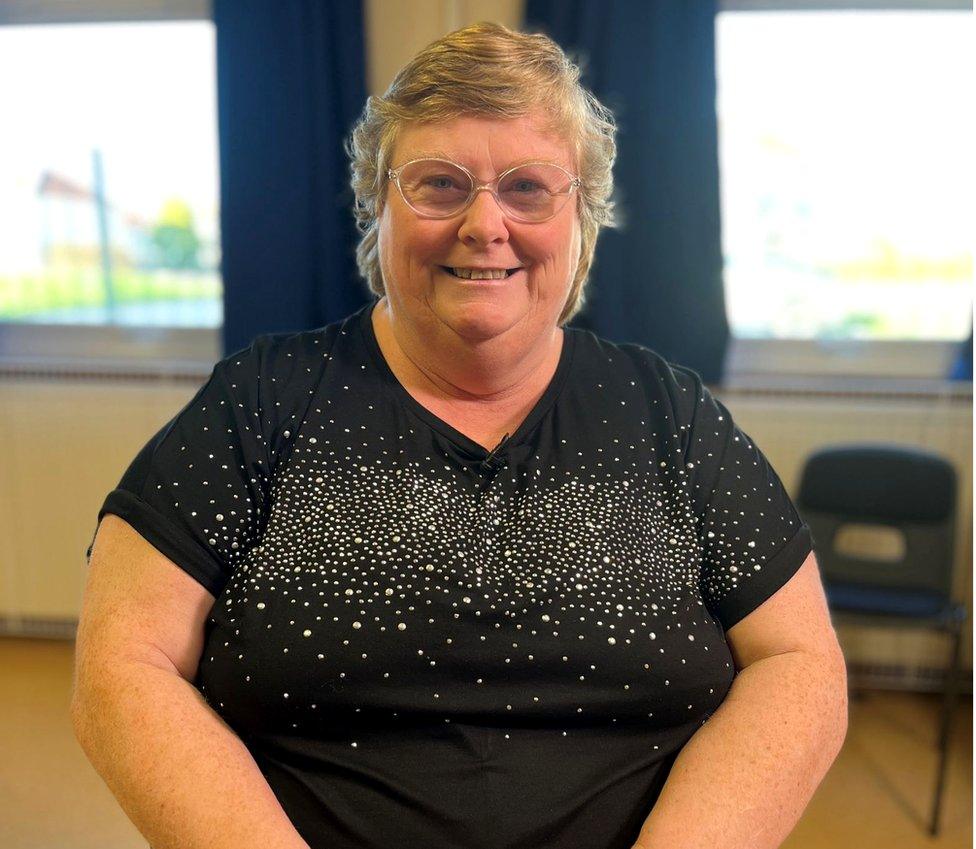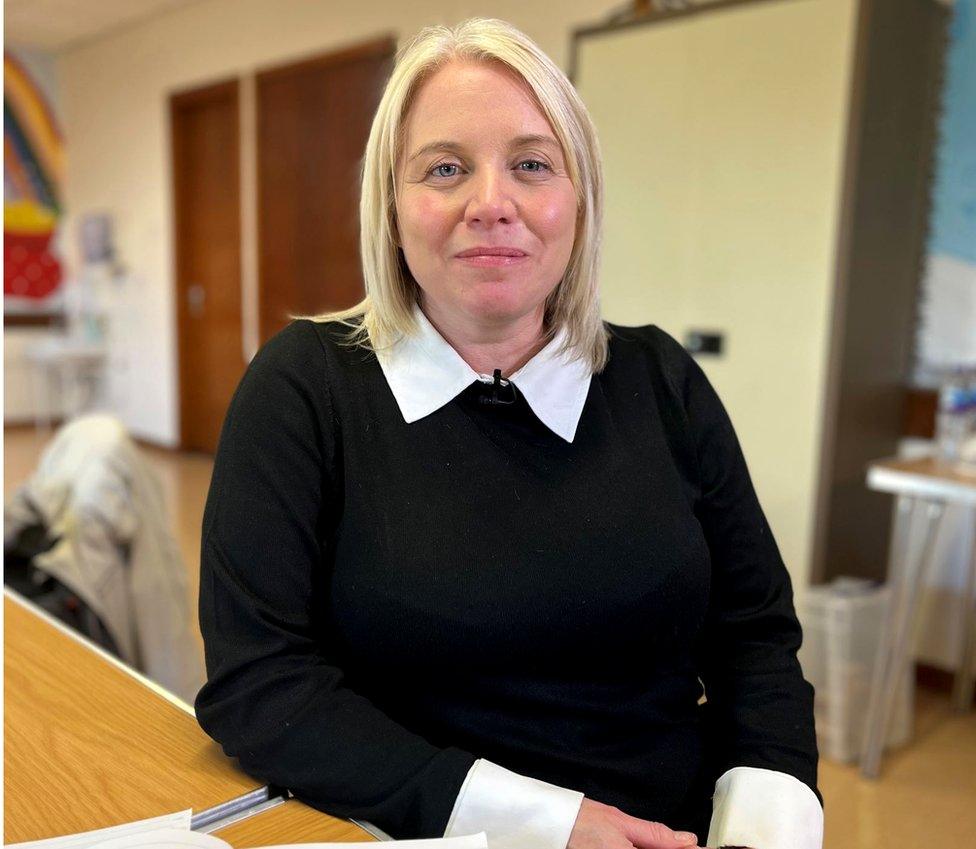'I was 49 before I could write my own address'
- Published
Henry and Irene speak about learning to read in later life
Henry Sweeney has gone through almost his entire adult life unable to read or write.
School had been tortuous. Bullied by other kids, he said the teachers didn't have time for him, so he sat at the back of the class.
"I couldn't read or write, I could just about write my name, I couldn't write my address at all," he said.
He made it through by getting other people to read for him - mail, food labels, medicines.
Since leaving school, Henry has made a living from gardening and landscaping, and has become an expert on plants.
But as his parents got older, he realised he could not rely on them to help him read.
Eighteen months ago he discovered an adult learning class in his home town of Motherwell. Nervously he went along, fully expecting - at the age of 49 - to be the oldest there. He wasn't.
"You're thinking you're the only one at that age, but when you get settled in, you get to know you're not the only one, there are a lot more," he said.
It has been life-changing.
"I can do a lot more stuff in the house now, like my bills. Any letters that come in, I take my time and I can read it," Henry said.
Going to the supermarket is easier too. "I can go and pick a packet of beans or tomatoes or cucumber and read it," he added.
Henry was what is known as "functionally illiterate". This is someone who can only read or write basic words like a name.
Most can get by, but might struggle to understand a food label, medical prescription, menu or even a text message.
The last Scottish government survey was in 2009 and put the number of people in Scotland who have problems with literacy at around 26%.

Irene McGregor now leads adult literacy classes in Airdrie
Irene McGregor also left school unable to read and write.
"It affected me a lot, I had no confidence in myself, I couldn't even fill in a form. When someone asked me I'd just started shaking, started panicking, wee panic attacks".
At school one of her teachers called her a "dunce", saying "you're stupid". She was put into a class, in a corner, with a colouring book.
Leaving at 16, Irene went to work at Boots. She loved it and longed for promotion. That never came - because of the lack of reading and writing skills.
Irene, who lives in Airdrie, began learning to read in her 20s and now she can read a whole novel. More importantly she can read to her grandchildren.
"I'm actually sitting reading a book that I would never, ever do in a month of Sundays," she said. "It helps you with your life, with your children, with your grandchildren, especially with all this new tech stuff"
Both Henry and Irene take part in North Lanarkshire Council's adult community learning classes.
Irene is such a passionate advocate for adult learning, she runs classes in Airdrie.
As for Henry, he recently learned he is dyslexic. His struggle to read and write makes sense but he wants people to know they are never too old to learn.
Nicola Barlow, the council's community learning and development officer, said there was still a stigma to having low literacy skills.

Nicola Barlow says people with literacy problems may not have had the opportunity to learn at school
"Even in 2023 people feel embarrassed," she said.
"For many adults they've lived their lives feeling that they've had lots of constrained opportunities.
"They can't apply for certain jobs, because of their limited skills, they can't support their children with their homework."
She said people who attend the classes realise that they did not have the opportunity to learn at school - whether it was because of illness, supporting their parents, or moving around.
Lindsay Paterson, professor emeritus of education policy at the University of Edinburgh, was critical of the Scottish government's lack of up-to-date data on adult literacy.
"It [the Scottish government] has declined to take part in the respected international studies of literacy and numeracy and has declined to do that in over a decade.
"Other parts of the UK do take part, notably England and Northern Ireland.
"We should be doing that, we should be getting up-to-date global standard data to find out what's going on.
"However, from the most recent data we have, we can say the low levels of literacy and numeracy in Scotland are really quite concerning".
He said local authorities should be legally required to provide quality adult education.
The Scottish government said it was committed to supporting adult learners and has provided more than £1m of funding this year to adult learning organisations working directly in communities across Scotland.
A spokesperson said: "The further and higher education minister has also announced an independent review of community learning and development provision across Scotland which includes adult learning.
"The review will identify strengths in our current approach to community learning and development and highlight where improvements may be necessary as work continues towards reforming Scotland's education and skills system."